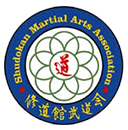Are you a western martial artist?
Are you feeling a little unsure of how to use the word “sensei?”
Western practitioners sometimes worry that calling more than one person sensei is disloyal. In Japan, this concern does not exist. A person may address many teachers or professionals as sensei in a single day. Loyalty belongs to one’s lineage, instruction, and training relationship—not to exclusive use of the word.
Traditionally, Japanese students use sensei both inside and outside the dojo. The title reflects an ongoing teacher–student relationship, not a situational courtesy. Limiting its use to the training hall can unintentionally reduce the teacher’s role to that of a technician rather than a lifelong guide and mentor, which runs counter to the values of budo.
For Western dojo wishing to honor Japanese practice, several principles are helpful: use Name Sensei rather than reversing the order; reserve sensei for addressing others, not for self-promotion; and clearly distinguish between courteous address and formal qualifications by stating ranks and teaching titles directly. It is also important to remember that sensei is widely used outside martial arts in Japanese society, reinforcing that it is a living part of the language, not a dojo-specific rank.
Read more in our latest article.
Join a Martial Arts Association that Supports Your Art
SMAA has divisions for aikido, iaido, judo, jujutsu, and karate. If one or more of these is your passion, SMAA is the martial arts association for you!
To reach out about joining, call 734-720-0330 or submit an online contact form.
















